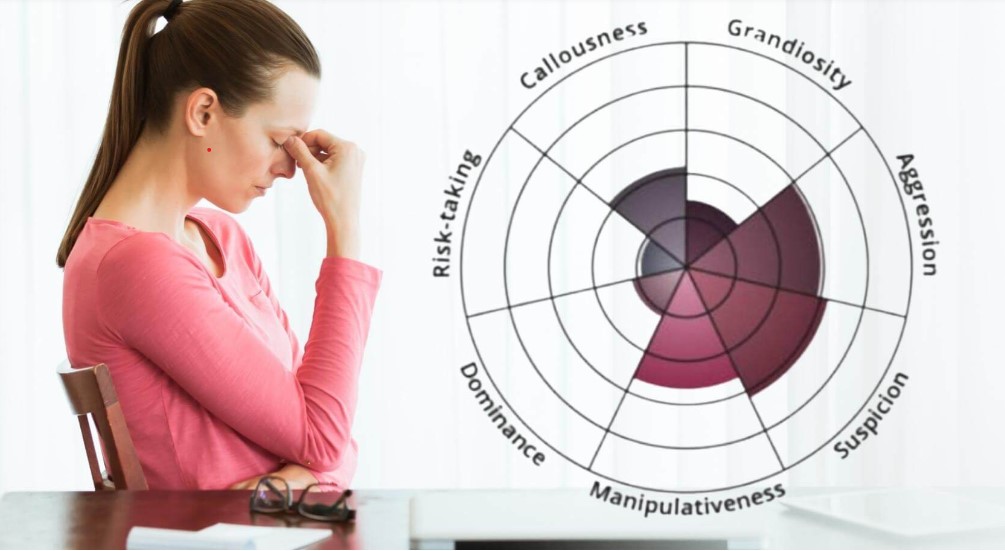It (abbreviated: DPT) is a series of psychological questions used to gauge a person’s level of agreeableness, compassion, respect, and sociability.
Who gave the idea of a difficult person test?
Expressions exist in the majority of the world’s cultures to characterize people who are challenging to interact with. The seven characteristics of a difficult person, according to Chelsea Sleep and her University of Georgia colleagues, may now be measured scientifically.

Introduction
A site called IDR labs developed the test. Individual Differences Research, or IDR, asserts that it develops exams based on peer-reviewed academic research. Although they claim to be independent of any specific experts or research organizations, Sleep has admitted to other media sites that she was not involved in the development of the Difficult Person Test.
ID Research Labs offers the test. It asserts that peer-reviewed research serves as the foundation for each personality test it offers. According to her interview with Harvard Business Review, she was not engaged in the test’s formulation.
Seven personality qualities were measured in Sleep’s research to analyze “antagonism”: callousness theory, aggressiveness and domineeringness, self-doubt, manipulativeness, and risk-taking. These personality qualities will be shown to you in the format of a colorful graph after you have finished the IDRlabs exam, showing how you performed for each one.
As it promises, it will also award you points based on how well (or simply) you consider it to be capable of surviving with you.
Does the test adhere to the rules set forth by law?
No, and yes. The IDR labs online exam was not created by the academics who carried out the study, even though it is based on peer-reviewed research.
Sleep and their colleagues sought to better understand the personality structure through their studies. They did research with an emphasis on the nature of war. The most widely used assessments of personality disorder feature served as the study’s foundation. It includes 532 students from a significant university in the South. According to the results, antagonism occurs as a feature at various intensities and levels of specificity.
The fact that antagonistic qualities lead to issues if they are not rectified is one of the key points Miller stresses on. Miller says that a flexible personality is a good personality. “You want your attitude to change somewhat depending on the situation. It’s a problem if you can’t change who you are to fit specific needs. If you’re tough in every situation, it can be a sign of a condition if the issues are widespread, ongoing, and severe.

What characteristics define a challenging individual?
Seven characteristics of this test.
- Being indifferent and showing savage contempt for people is called callousness.
- Grandiosity.
- Aggressiveness.
- Suspicion.
- Manipulativeness.
- Dominance.
- Risk-taking.
What are the top 7 personality types to deal with?
- a bully. This is a perfect example of what most people would consider a challenging individual.
- The egotist. The egomaniac is the bully’s close relative.
- The One in Need. We all have needs.
- a pessimist.
- The Gripe-maker.
- The Plunderer
- The Boring One
What type of questions are present in the Difficult Person Test?
- I’ve heard from others that I’m a hothead. (Agree or Disagree)
- I frequently get called a heartless or icy person. (Agree or Disagree)
- Sometimes, just being around someone irritates me. (Agree or Disagree)
- I occasionally find myself in risky situations. (Agree or Disagree)
- People who don’t follow my instructions should be reprimanded; others should pay close attention to me. (Agree or Disagree)
- I try to stay out of direct disagreement with folks that I might need in the future.
- (Agree or Disagree)
- Even when someone has shown me loyalty, I frequently have a bad feeling about them. (Agree or Disagree)
- I truly don’t care whether I insult others. (Agree or Disagree)
- People follow my instructions because they fear me. (Agree or Disagree)
- The issue with other people’s emotions is not mine. (Agree or Disagree)
- People deliberately say and do things to irritate me. (Agree or Disagree)
- I am a person who is deserving of praise and achievement. (Agree or Disagree)
- Most people are slackers who only exert effort when necessary. (Agree or Disagree)
- I like to humiliate them and then win.” (Agree or Disagree)
- I’m told by others that I’m out of control. (Agree or Disagree)
- I flatter people insincerely to achieve what I want. (Agree or Disagree)
- I find it difficult to open up to others. (Agree or Disagree)
- I keep track of private information that might one day be used against somebody. (Agree or Disagree)
- I am vengeful. (Agree or Disagree)
- In general, I consider myself to be a better person. (Agree or Disagree)
- When something thwarts my plans, I become irate. (Agree or Disagree)
- I believe that I am extra unique than other people. (Agree or Disagree)
- When people disagree with me, I may become rather irate. (Agree or Disagree)
- I enjoy giving instructions to others. (Agree or Disagree)
- I keep a close eye on my friend or partner, colleagues, and/or family members to see who is being unfaithful. (Agree or Disagree)
- When someone irritates me, I consider injuring and/or shaming them. (Agree or Disagree)